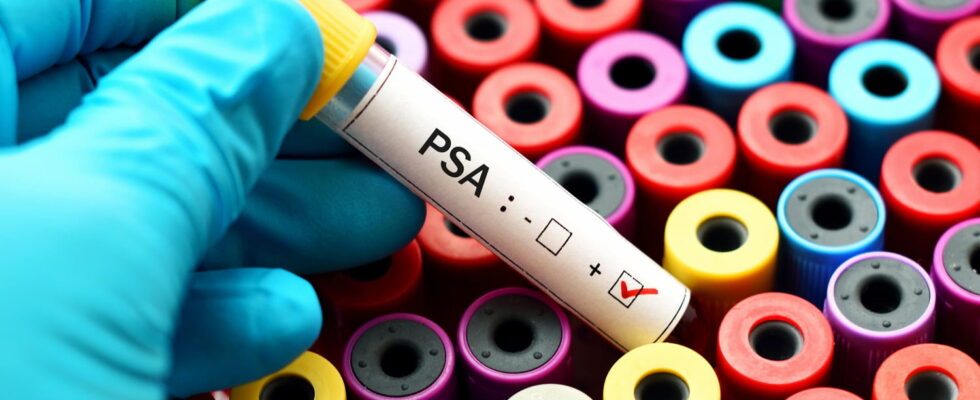It is an almost essential analysis in human life.
The majority of men know it, especially after the age of 50. The PSA level (for “Prostate Specific Antigen” in French) is a blood marker specific to the prostate. It is secreted by normal prostate cells but also by cancer cells when they develop in this organ (exclusively male). This type of cancer usually does not cause symptoms unless it is very advanced. Analyzing the PSA level then helps detect it. “Cancer cells express PSA to a much greater extent. An increase in this level can therefore be linked to early or advanced cancer” explains Dr Guillaume Ploussard, urological surgeon and oncologist. PSA level elevation can also occur “when the prostate is large (adenoma) as part of an infection (prostatitis) or chronic inflammation of the latter” specifies Dr Natacha Naoun, medical oncologist at the Gustave Roussy center. These infections can be of very varied origin and are male urinary infections.
The PSA dosage is generally decided after discussion with the general practitioner. The larger the volume of the prostate, the greater the risk of secreting the antigen. And as the prostate naturally increases in size with age, “we start to particularly follow men from the age of 50” continues Dr. Ploussard. The urinary problems that patients may encounter are also among the symptoms prompting patients to consult. The dosage is done by blood test. “When we set up PSA level screening, it is associated with a clinical examination with a rectal exam” adds Dr Naoun. So what rate should you be concerned about? Make you think of cancer?
The “alarming” threshold
“There is no real standard since the PSA level varies according to age” clarifies the medical oncologist. Nevertheless “the threshold usually considered to be alarming is 4 nanograms of PSA”. If such a rate is reported, it is advisable to consult a urologist to carry out additional tests such as a prostate MRI. Regarding treatment, it is important to understand that the goal is not to lower the PSA level. “but to treat the cause of its elevation” explains Dr. Naoun. She also recalls that the PSA level has several reasons for increasing apart from prostate cancer: “If the rate is high in the context of an infection, treatment with antibiotics will be prescribed. If this elevation has occurred because of a large prostate, there is nothing that can be done unless it is preventing the patient’s urine from flowing properly.”
